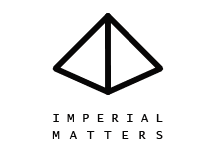(re-) Claimed She-Mail / / Anita Stahl
In my “Introduction to Gender and Sexuality Studies” class at NYU, a professor told the story of her grandmother asking what she teaches: “Queer theory.” “Oh dear, I don’t think you’re supposed to use that word anymore.” In academic and liberal circles today, the word is used so casually, I am quick to forget there was a time before reappropriation, when it was an insult thrown upon the community by the outside.
For a few seasons now, I’ve been an avid watcher of RuPaul’s Drag Race.
For a few years now, I’ve been an ardent feminist and queer advocate.
When I watch Drag Race, I see satire and parody and it cracks me the fuck up. I’m not offended that the portrayals of women are big boobs, big hair, barrels of paint, and a skimpy dress, accessorized with high heels. It’s a parody of femininity and the expectations placed on women; every challenge shows the effort and time that go into becoming such a woman. (Unless you’re Courtney Act, in which case Chapstick and mascara are all you need.)
Read More














